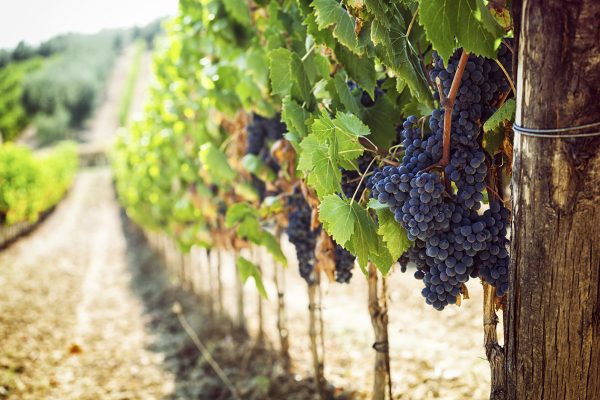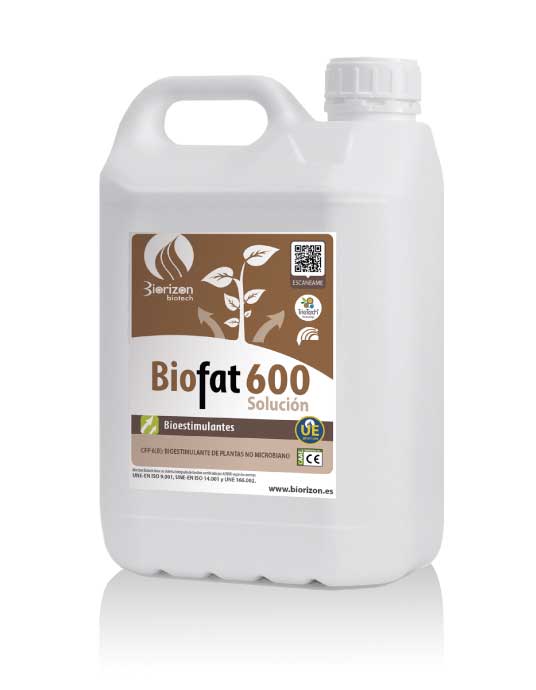

Vineyard
Tests and results
Vineyard
VINEYARDS

Origins and Varietal Diversity:
Vine cultivation, with its ancestral roots, has evolved into an art that produces everything from exquisite table grapes to world-renowned wines. Prominent varieties for table grapes include Thompson Seedless and Red Globe, while for winemaking, varieties such as Cabernet Sauvignon and Chardonnay are emblematic. The diversity of grape varieties reflects the richness of the viticulture, from robust red wines to fresh and fruity whites.
Climate and Soil Requirements: Climate Change Challenges
Viticulture, intrinsically linked to climatic conditions, is facing significant changes due to global warming. One of the most notable transformations is the decrease in the frequency and intensity of winter chilling hours, a phenomenon essential for the proper winter rest of the vine. This deficit of chilling hours negatively affects bud break and flowering, compromising the quality and quantity of the crop. Varieties that previously thrived in cooler climates may now face difficulties in completing their development cycle.
Drought is another crucial challenge affecting modern viticulture. Warmer and drier seasons, exacerbated by climate change, lead to significant water stress in the vineyards. Water scarcity not only influences the development of the grapes, but also has a direct impact on the quality and concentration of sugars in the bunches. In addition, lack of water affects irrigation efficiency, further exacerbating water stress problems.
The quality of water used in irrigation is a critical aspect that is often compromised. Climate change has intensified the frequency of extreme weather events, such as intense storms and prolonged droughts, which can affect the quality of water available for irrigation. The presence of salts, heavy metals or biological contaminants can hinder the absorption of nutrients by the roots of the vine, generating nutritional imbalances and affecting the overall health of the plant.

Physiopathologies and Nutritional Disorders: Preserving the Health of the Vineyard
The vineyard, like all plants, depends on a precise nutritional balance for optimal development. Nutritional disorders can arise when the plant does not receive essential elements in adequate amounts. Among them, iron chlorosis is a common concern, manifesting itself in yellowing leaves due to iron deficiency. Vines may also experience challenges related to the assimilation of other micronutrients, affecting photosynthesis and overall metabolism.
Climate change, with its erratic rainfall patterns and extreme temperatures, can affect the availability and uptake of nutrients in the soil. Soil acidification, a phenomenon associated with climate change, can influence the solubility of certain essential nutrients. La acidificación del suelo, un fenómeno asociado al cambio climático, puede influir en la solubilidad de ciertos nutrientes esenciales.

Early identification of nutritional disorders is essential. Regular soil analyses and foliar evaluations allow growers to adjust fertilisation programmes according to the specific needs of the vineyard. The application of balanced fertilisers, with emphasis on micronutrients such as iron, zinc and manganese, can correct nutritional deficiencies. The integration of soil management practices, such as the incorporation of organic matter, also contributes to maintaining an environment conducive to nutrient uptake.
Challenges in Pests and Diseases
The vineyard faces persistent challenges related to pests and diseases that can compromise plant health and affect grape quality. Insects such as spider mites, aphids and moths can wreak havoc, damaging leaves and bunches. In addition, the spread of vector-borne diseases, such as flavescence dorée, poses a significant threat.
Changing climatic conditions contribute to the proliferation of fungal diseases such as downy mildew and powdery mildew. These pathogens can thrive in warm and humid environments, affecting vegetation and compromising grape quality. Bacteria such as Xylella fastidiosa also pose risks, causing sudden declines in vine health and threatening production.

Origins and Varietal Diversity:
Vine cultivation, with its ancestral roots, has evolved into an art that produces everything from exquisite table grapes to world-renowned wines. Prominent varieties for table grapes include Thompson Seedless and Red Globe, while for winemaking, varieties such as Cabernet Sauvignon and Chardonnay are emblematic. The diversity of grape varieties reflects the richness of the viticulture, from robust red wines to fresh and fruity whites.
Climate and Soil Requirements: Climate Change Challenges
Viticulture, intrinsically linked to climatic conditions, is facing significant changes due to global warming. One of the most notable transformations is the decrease in the frequency and intensity of winter chilling hours, a phenomenon essential for the proper winter rest of the vine. This deficit of chilling hours negatively affects bud break and flowering, compromising the quality and quantity of the crop. Varieties that previously thrived in cooler climates may now face difficulties in completing their development cycle.
Drought is another crucial challenge affecting modern viticulture. Warmer and drier seasons, exacerbated by climate change, lead to significant water stress in the vineyards. Water scarcity not only influences the development of the grapes, but also has a direct impact on the quality and concentration of sugars in the bunches. In addition, lack of water affects irrigation efficiency, further exacerbating water stress problems.
The quality of water used in irrigation is a critical aspect that is often compromised. Climate change has intensified the frequency of extreme weather events, such as intense storms and prolonged droughts, which can affect the quality of water available for irrigation. The presence of salts, heavy metals or biological contaminants can hinder the absorption of nutrients by the roots of the vine, generating nutritional imbalances and affecting the overall health of the plant.

Physiopathologies and Nutritional Disorders: Preserving the Health of the Vineyard
The vineyard, like all plants, depends on a precise nutritional balance for optimal development. Nutritional disorders can arise when the plant does not receive essential elements in adequate amounts. Among them, iron chlorosis is a common concern, manifesting itself in yellowing leaves due to iron deficiency. Vines may also experience challenges related to the assimilation of other micronutrients, affecting photosynthesis and overall metabolism.
Climate change, with its erratic rainfall patterns and extreme temperatures, can affect the availability and uptake of nutrients in the soil. Soil acidification, a phenomenon associated with climate change, can influence the solubility of certain essential nutrients. La acidificación del suelo, un fenómeno asociado al cambio climático, puede influir en la solubilidad de ciertos nutrientes esenciales.
Early identification of nutritional disorders is essential. Regular soil analyses and foliar evaluations allow growers to adjust fertilisation programmes according to the specific needs of the vineyard. The application of balanced fertilisers, with emphasis on micronutrients such as iron, zinc and manganese, can correct nutritional deficiencies. The integration of soil management practices, such as the incorporation of organic matter, also contributes to maintaining an environment conducive to nutrient uptake.
Challenges in Pests and Diseases
The vineyard faces persistent challenges related to pests and diseases that can compromise plant health and affect grape quality. Insects such as spider mites, aphids and moths can wreak havoc, damaging leaves and bunches. In addition, the spread of vector-borne diseases, such as flavescence dorée, poses a significant threat.
Changing climatic conditions contribute to the proliferation of fungal diseases such as downy mildew and powdery mildew. These pathogens can thrive in warm and humid environments, affecting vegetation and compromising grape quality. Bacteria such as Xylella fastidiosa also pose risks, causing sudden declines in vine health and threatening production.

Growing environmental concerns and the demand for more sustainable wine products have led to more restrictive legislation on the use of phytosanitary products. This poses an additional challenge for winegrowers, as they must maintain vineyard quality and productivity while complying with stricter regulations.
Producer Needs and Business Challenges:
Vineyard producers face complex business challenges, from volatile wine prices to global competition. Organic certification and sustainable practices are increasingly essential to meet market and legislative expectations. Traceability and transparency in production have become imperative, in line with the preferences of a more informed and demanding consumer.
Post-harvest Challenges and Changes in the Olive Oil Market
Preserving the quality of wine after harvest poses unique challenges. From fermentation to bottling, it is essential to maintain the wine's organoleptic characteristics and stability. Problems such as oxidation, microbiological instabilities and undesirable changes in taste represent significant risks.















